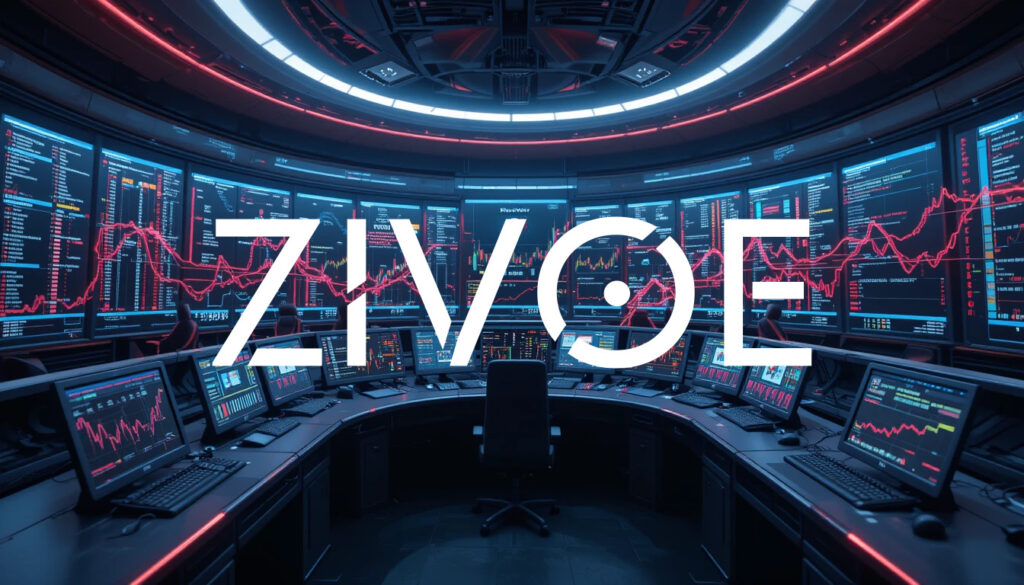The traditional lending system is riddled with inefficiencies and inequalities. Predatory lending practices, high interest rates, and lack of transparency have left millions of borrowers trapped in cycles of debt. Enter Zivoe, a blockchain-based platform leveraging tokenization to create a fairer, more transparent lending ecosystem. By combining decentralized finance (DeFi) principles with real-world assets, Zivoe is challenging the status quo and offering a viable alternative to predatory loans.
The Problem with Traditional Lending
Predatory lending is a pervasive issue, particularly in underserved communities. These practices often target vulnerable borrowers with high-interest loans, hidden fees, and unfavorable terms, leading to financial instability and long-term debt. Traditional financial systems are also plagued by:
Lack of Transparency: Borrowers often struggle to understand the true cost of loans due to complex terms and hidden fees.
Centralized Control: Banks and financial institutions act as gatekeepers, often excluding those with limited credit history or collateral.
Inefficient Processes: Loan approvals can take days or weeks, leaving borrowers in urgent need without access to funds.
Zivoe aims to address these issues by leveraging blockchain technology and tokenization to create a more inclusive and equitable lending system.
How Zivoe Works
Zivoe’s innovative approach revolves around tokenizing real-world assets (RWAs) and using them as collateral for decentralized loans. Here’s how it works:
Tokenization of Assets: Zivoe allows users to tokenize real-world assets such as real estate, vehicles, or even future income streams. These tokens represent ownership or claims on the underlying assets and are stored on the blockchain.
Collateralized Loans: Borrowers can use these tokenized assets as collateral to secure loans on the platform. This eliminates the need for traditional credit checks, making lending accessible to a broader audience.
Decentralized Lending Pool: Lenders can participate by contributing to a decentralized lending pool, earning interest on their deposits. Smart contracts automate the lending process, ensuring transparency and reducing the risk of human error or manipulation.
Fair Interest Rates: Zivoe’s algorithmically determined interest rates are designed to be fair and competitive, avoiding the exorbitant rates often associated with predatory lending.
Benefits of Zivoe’s Model
Inclusivity: By removing traditional barriers to entry, Zivoe opens up lending opportunities for individuals and businesses that are often excluded from the traditional financial system.
Transparency: All transactions are recorded on the blockchain, providing a clear and immutable record of loan terms, repayments, and interest rates.
Efficiency: The use of smart contracts streamlines the lending process, enabling faster loan approvals and disbursements.
Lower Costs: By cutting out intermediaries, Zivoe reduces overhead costs, allowing for lower interest rates and fees.
Empowerment: Borrowers retain control over their assets while accessing the funds they need, fostering financial independence and stability.
Disrupting Predatory Loans
Zivoe’s model directly challenges the predatory lending industry by offering a fairer, more transparent alternative. Here’s how:
Eliminating Exploitative Practices: With clear terms and algorithmically determined rates, Zivoe ensures that borrowers are not subjected to hidden fees or unfair conditions.
Providing Access to Credit: By accepting tokenized assets as collateral, Zivoe enables individuals with limited credit history or unconventional income streams to access loans.
Promoting Financial Literacy: Zivoe’s transparent platform encourages borrowers to understand the terms of their loans, fostering greater financial awareness and responsibility.
Challenges and the Road Ahead
While Zivoe’s approach is promising, it is not without challenges. Regulatory compliance remains a key hurdle, as tokenization and DeFi lending operate in a rapidly evolving legal landscape. Additionally, the success of Zivoe depends on widespread adoption of blockchain technology and tokenization, which may take time to achieve.
Despite these challenges, Zivoe represents a significant step forward in the fight against predatory lending. By leveraging blockchain technology, Zivoe is not only disrupting the traditional lending system but also paving the way for a more equitable financial future.
Conclusion
Zivoe’s innovative use of tokenization and decentralized finance is a beacon of hope for those trapped in cycles of predatory debt. By offering a fairer, more transparent lending model, Zivoe is empowering borrowers and challenging the exploitative practices of traditional lenders. As the platform continues to grow, it has the potential to transform the lending landscape, making financial inclusion a reality for millions around the world.
